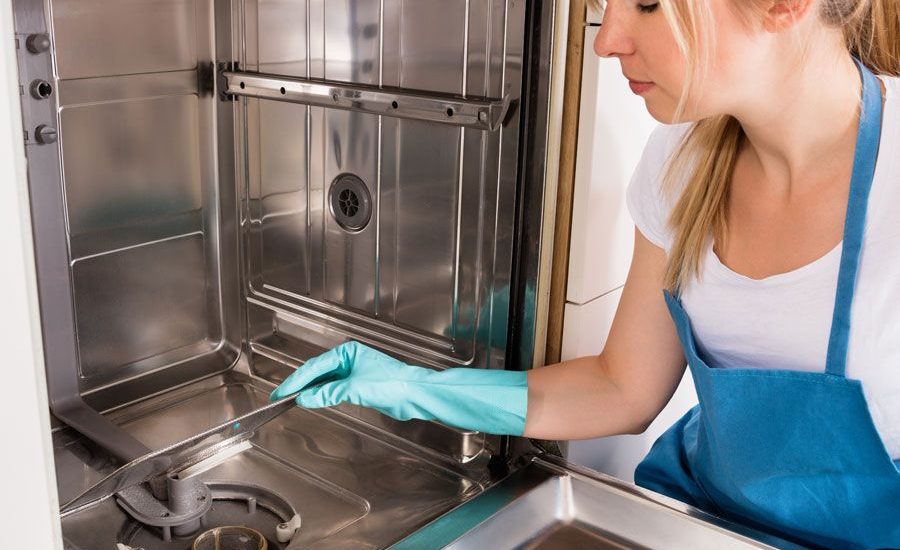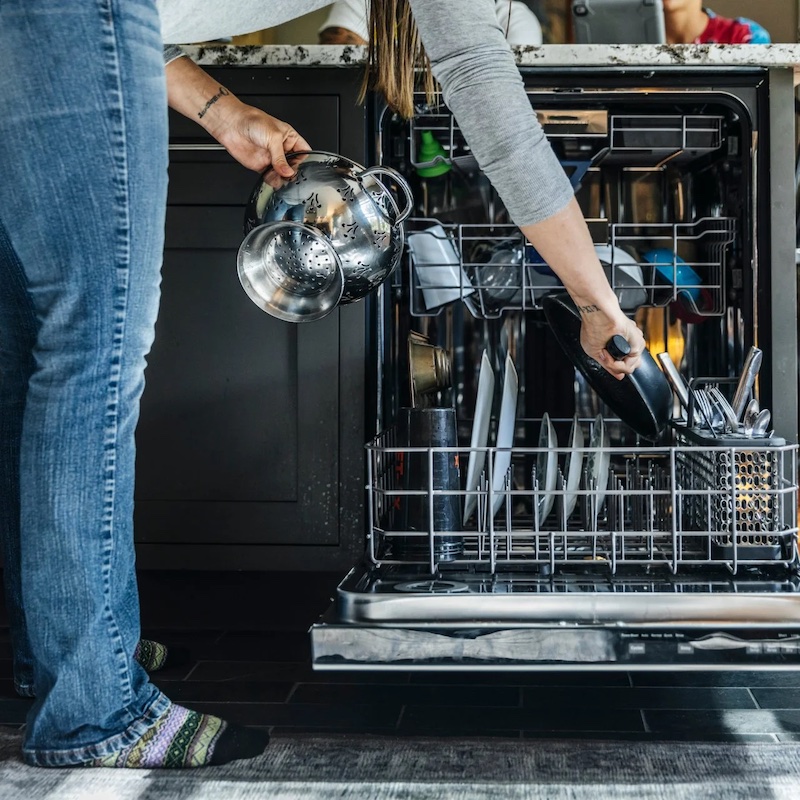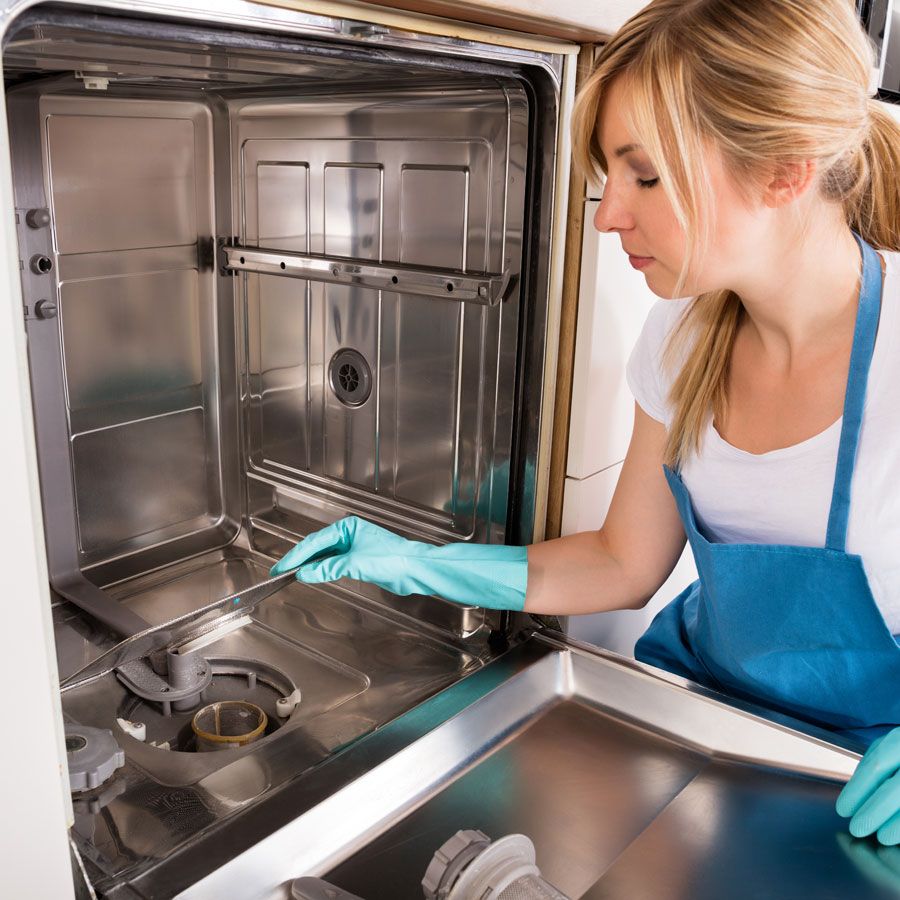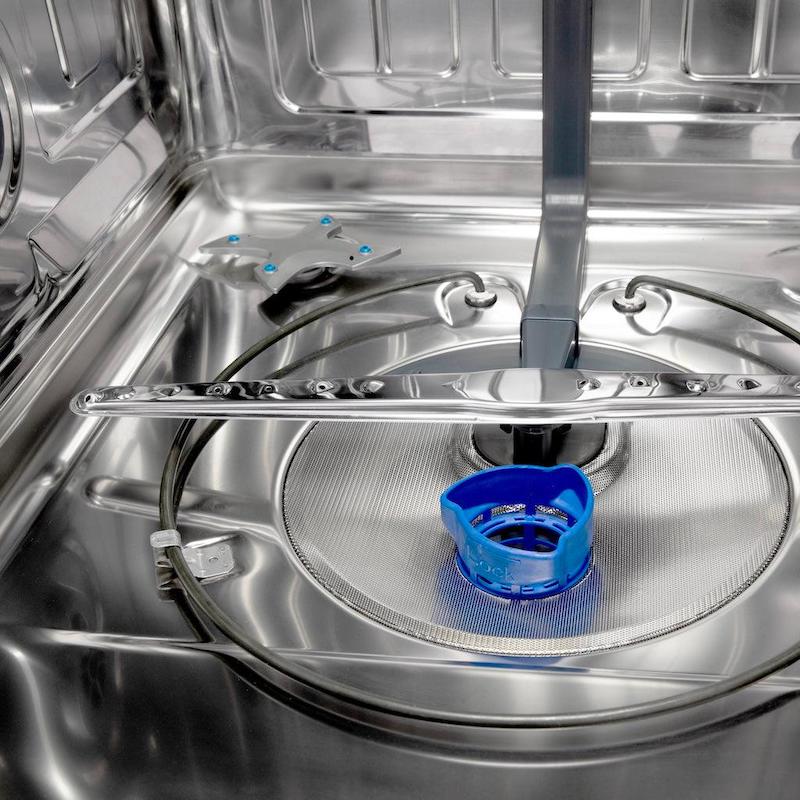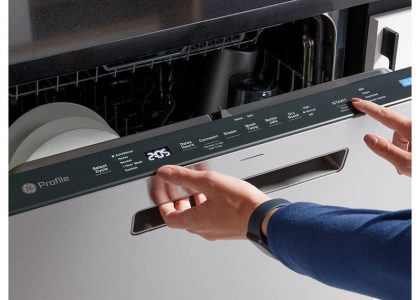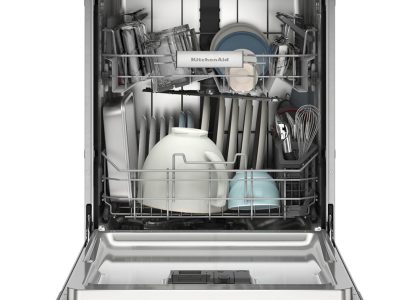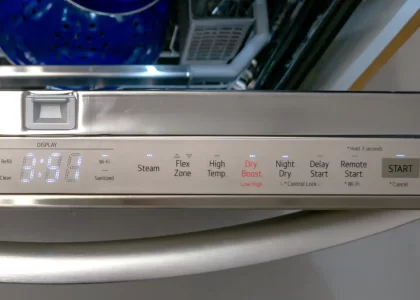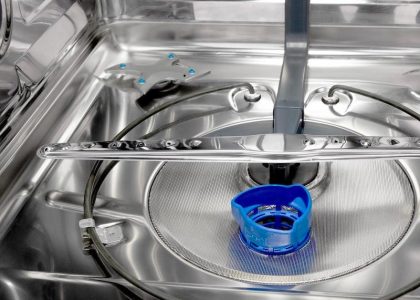Why Clean Your Dishwasher Regularly
Regular cleaning is key to your dishwasher’s performance and longevity. Dirt, food particles, and soap scum can build up over time. This leads to unpleasant odors and a haven for bacteria. A clean dishwasher means cleaner dishes. A regular cleaning schedule also helps prevent minor issues from becoming major problems.
Your dishwasher works hard to clean your dishes, but it also needs care to function well. Regular cleaning can improve efficiency and save on energy costs. It ensures that your dishwasher can keep up with your needs. Here’s why you should mark ‘clean the dishwasher’ on your chore calendar:
- Prevent Odors: Food residue can cause bad smells. Cleaning your dishwasher helps eliminate odors before they start.
- Better Cleaning Performance: A clean dishwasher means spotless dishes. Your machine can’t clean well if it’s not clean itself.
- Longevity: Regular maintenance can extend the life of your appliance. It’s better for your wallet in the long term.
- Health and Hygiene: Dishwashers can harbor germs. Regular cleaning keeps them at bay, safeguarding your household’s health.
- Efficiency: A clean dishwasher runs more efficiently, using less water and power. This can lower your utility bills.
Remember, ‘how often should you clean your dishwasher’ isn’t just a question. It’s a reminder of the importance of dishwasher upkeep. Cleaning it often can ensure it remains a reliable kitchen aide. Make it part of your kitchen routine for the best results.
Signs Your Dishwasher Needs Cleaning
It’s important to recognize when your dishwasher needs some attention. Here are signs to watch for:
- Grease and Grime: If you see a greasy film or grime on the interior surfaces, it’s time for a clean.
- Reduced Efficiency: Dishes coming out not as clean? It could mean your dishwasher needs to be cleaned.
- Foul Odors: Unpleasant smells are a clear sign that food particles and bacteria have built up.
- Dishwasher Sounds: If it’s making unusual noises, it may be straining due to obstructions.
You might wonder, ‘how often should you clean your dishwasher?’ Well, spotting these signs means it’s time to clean. Addressing them promptly ensures you’re not asking this question too late. Keep these indications in mind, and act fast to maintain a fresh and efficient dishwasher.
Daily Maintenance Tips for Your Dishwasher
Daily maintenance for your dishwasher ensures it runs smoothly and stays clean. Here’s what you can do every day to help:
- Rinse Dishes: Before loading, quickly rinse dishes to remove food bits. This prevents clogs and keeps the interior clean.
- Run Regularly: Use your dishwasher regularly. This prevents food particles from drying and sticking.
- Wipe Spills: After each use, wipe any spills or debris from the door and seals. Doing this maintains cleanliness and function.
- Clean Filters: Check and clean the filters to avoid blockages. Simple rinsing under the tap can do the trick.
- Air Out: After a cycle, leave the door ajar to let the interior dry. This habit helps prevent mold and smells.
- Inspect Sprayer Arms: Ensure sprayer arms move freely. This guarantees dishes receive a thorough wash each time.
- Empty Dishwasher Fully: Remove all dishes after the cleaning cycle. This keeps the dishwasher ready for the next load.
Remember, asking ‘how often should you clean your dishwasher’ is part of a larger commitment to daily care. Spot cleaning and small tasks can make a major difference in your dishwasher’s performance and longevity. Stick to these daily maintenance tips for a fresh, efficient dishwasher.
Weekly Cleaning Tasks for Optimal Dishwasher Health
To keep your dishwasher running smoothly, tackle these weekly tasks:
- Clean the Door: Wipe the edges and underside of the door with a damp cloth to remove splatters.
- Deodorize: Sprinkle baking soda on the dishwasher floor and run a short cycle to deodorize.
- Unclog Jets: Use a toothpick to clear food particles from the sprayer arm holes.
- Check and Clean Seals: Gently clean around the door seals with a damp sponge. This prevents leaks.
- Vinegar Rinse: Place a cup of white vinegar on the top rack and run a full cycle to remove buildup.
- Inspect Racks: Look for trapped food particles or damage that can snag dishes.
- Remove Hard Water Stains: If you have hard water, wipe surfaces with vinegar to keep them spot-free.
Stay consistent with these weekly tasks. They help you avoid major issues and longer cleaning sessions. The frequency of ‘how often should you clean your dishwasher’ includes these weekly habits for a lasting, fresh-smelling dishwasher.
Monthly Deep Cleaning Routine
After taking care of daily and weekly tasks, a monthly deep cleaning routine is vital. This thorough cleaning addresses areas that don’t require weekly attention but do accumulate grime over time. Here’s what you need to do monthly:
- Wash Removable Parts: Take out the racks and utensil holders. Wash these parts in the sink with soap and warm water.
- Clean the Interior: Wipe down the walls and the interior surface of the dishwasher. Use a mix of warm water and baking soda.
- Inspect and Clean Spinners: Remove the spinning arms and rinse them under water. Clear out any debris that could block water flow.
- Freshen Up with Lemon: Run a normal cycle with a lemon wedge on the top rack. This helps remove odors and leaves a fresh scent.
- Deep Clean the Filter: For a deep clean, soak the filter in a solution of warm water and vinegar. After soaking, scrub the filter gently.
This routine keeps your dishwasher in top shape and powers through tougher buildup. Remember, the more you ask ‘how often should you clean your dishwasher’, the more it should prompt you to be proactive with maintenance. A disciplined monthly schedule will help keep your dishwasher on track for effective service.
Seasonal Dishwasher Maintenance Checklist
A seasonal maintenance checklist helps ensure your dishwasher always runs at its best. Here are essential tasks to do every three to six months.
- Inspect and Replace Hoses: Check the water hoses for signs of wear or leaks. Replace if needed.
- Clean the Spray Arm: Take apart the spray arm and soak it in vinegar. This removes hard water deposits and improves efficiency.
- Check for Rust: Examine the racks for rusting. If you find rust, repaint or replace the affected sections.
- Examine for Mold: Look for mold or mildew in hidden spots. Clean with a vinegar solution if necessary.
- Lubricate Racks: If your racks stick or squeak, use a silicone lubricant on the tracks.
- Run an Empty Hot Cycle: Every quarter, run your dishwasher empty on the hottest cycle. This can help sanitize and remove any lingering residue.
- Clean Exterior: Wipe down the dishwasher’s exterior, buttons, and handle with a damp cloth.
Sticking to this seasonal maintenance checklist can greatly extend the life of your dishwasher. It also answers the query ‘how often should you clean your dishwasher’ by incorporating crucial, less frequent tasks into your cleaning regime. Regular care is the key to a dishwasher that serves you well for years to come.
Natural Cleaning Solutions for Your Dishwasher
Beyond routine cleaning, using natural solutions can be effective and safe for your dishwasher. Here are easy, eco-friendly ways to clean:
- Vinegar: Run a cycle with a cup of white vinegar on the top rack. Vinegar cuts through grease and freshens.
- Baking Soda: After a vinegar cycle, sprinkle baking soda on the bottom. Run a short cycle to deodorize and brighten.
- Lemon: A lemon wedge on the top rack during a normal cycle can help remove odors. It leaves a fresh scent.
- Salt and Baking Soda: For tough stains, mix salt with baking soda. Apply the paste to spots, then wipe after a few minutes.
- Borax: Sprinkle borax on the dishwasher floor and run a regular cycle. It cleans and controls mold growth.
By using these natural cleaners, you’re not just keeping your appliance in good shape. You’re also reducing the use of harsh chemicals in your home. Natural solutions are gentle on your appliance and safe for the environment. When pondering ‘how often should you clean your dishwasher’, remember that integrating natural cleaners into your regular routine can enhance maintenance effectiveness.
Professional Dishwasher Cleaning and When to Consider It
While regular upkeep can greatly extend the life and efficiency of your dishwasher, there are times when professional cleaning is advised. Here’s when you should consider calling in the experts:
- When Basic Cleaning Isn’t Enough: If odors or grime persist despite your regular cleaning routine, a deeper clean by professionals might be needed.
- After an Appliance Malfunction: Should your dishwasher act oddly or break down, professionals can clean and inspect it for any issues.
- Prior to a Move: If you’re moving out, professional cleaning ensures you leave the dishwasher in top condition for the next residents.
- For Stubborn Build-Up: Hard water or mineral deposits can be tough to tackle. Experts have the right tools and solutions.
- To Save Time: Busy schedules may not allow for regular maintenance. Professional cleaning can be a timesaving choice.
Professionals have special tools and cleaning agents to handle tasks beyond basic maintenance. They can spot potential problems you may overlook. Investing in professional cleaning occasionally supports your ‘how often should you clean your dishwasher’ routine. It ensures your dishwasher operates at its best, without the headaches of unexpected breakdowns.

